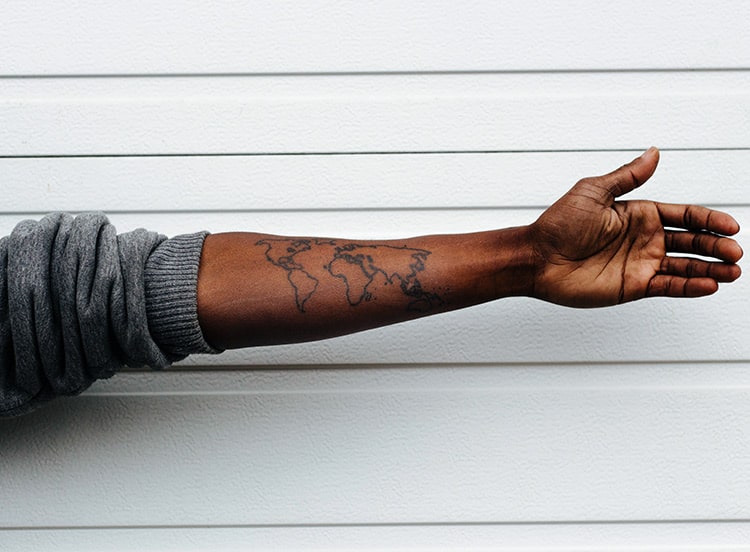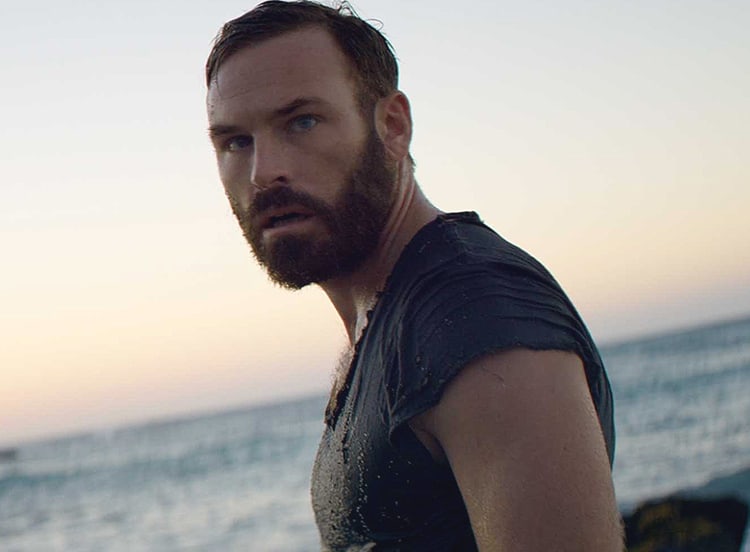
People all over the globe have rallied together to provide aid for the victims of Hurricane Harvey: tens of thousands have received food, clothing, shelter and other necessities. Mattress Mack opened his warehouses for victims to stay. People set aside their differences and mobilized in a beautiful way to care for those most in need.
And last week, President Trump announced that his administration would move to end the Deferred Action for Childhood Arrivals (DACA) program that currently protects people who entered the U.S. as undocumented children. As of today, bipartisan efforts may be in the works to keep the hundreds of thousands of young people in the country.
These two recent headlines have created some dissonance for American Christians—what does it mean to serve those in need and welcome the stranger? While we may disagree on policy, it is undeniable that people of faith are called to a life of radical hospitality, and Abraham understood this.
God chose Abraham and his wife Sarah in a very special way: God promised them Abraham, Sarah and their descendants were going to be the ones to be a blessing to everyone else (Genesis 12:2).
God promised Abraham abundant life, and in return, he was supposed to bless others with abundant life.
In all three monotheistic religions, Abraham is known for his radical hospitality, and Genesis 18-19 paint two portraits—one of blessing the stranger and one of cursing the stranger.
Radical Hospitality
One day, in the middle of the day, in the hot, dry desert, Abraham is resting under a tree outside his tent. All of the sudden, Abraham looks up and sees three men approaching. He gets up, runs to them and offers them food, water and a place to rest.
The three men accept and Abraham and his household prepare the meal, and while they eat Abraham waits on them (Genesis 18:1-8). A closer look at this story gives us some clues about what it means to be a blessing to others.
When Abraham sees the men, in a split second, he has to make a choice—are these strangers friends or enemies?
Do they mean me harm, or do they come in peace?
Am I going to defend myself, my home, my wife? Or am I going to bless, like God called me to do?
It’s tempting to hunker down, to defend, to build walls around our families, our homes, our hearts, our countries—because it’s easier. There’s no risk when we hide. But radical hospitality requires us to open ourselves up to other people—and that’s inherently risky.
Maybe it’s not that we’re risking our physical safety like Abraham did, but we are risking our pride. When we offer radical hospitality, there’s always a risk that the other person might reject it. There’s always a risk of being embarrassed, of being hurt, of the other person taking advantage of us.
And we have a choice. Do we defend, or do we bless? Abraham chose to be a blessing.
And not only did he welcome them, he ran to them. He set a feast before the three strangers—the best ingredients, the choice beef, the richest milk.
Scripture says that he ran to them. He didn’t wait until they approached him. He didn’t hang back. He didn’t hesitate. He got up and he initiated. The entire passage is chock-full of urgent language: He ran to the strangers, hurried back to the tent, told Sarah to hurry and bake some bread, had the servant prepare the calf quickly. Radical hospitality is proactive, not reactive.
But Sarah is the real MVP of the story. Scripture says that Abraham asked her to “knead three seahs of the finest flour and make some baked goods.”
I had always assumed that a “seah” was equivalent to about a cup, which would mean Sarah would have baked a loaf of bread. That seems reasonable. Except a seah isn’t a cup. Or a pint. Or a quart. It’s equivalent to 1.5 gallons of flour. Three seahs is nearly five gallons! Sarah baked a ton of bread!
Sarah and Abraham went above and beyond just merely welcoming someone into their homes. They gave the best of themselves to these strangers, who may or may not have meant them harm.
And this makes me think, how often do I fall into the trap of believing that there’s just not enough? Not enough food, not enough time, not enough energy to share? Not enough jobs, not enough space, just not enough. It’s tempting to operate out of a scarcity mentality, believing that I can only give the bare minimum to anyone or anything.
But what if we actually believed that there is enough? And what if we shared with others like there is enough? Then, wouldn’t there actually be enough?
God is not a God of scarcity—love and blessings and abundant life don’t run out. God is a God of abundance who shares the best of God’s self with us. What if we began to share the best of ourselves with others? What if we began to share abundantly?
In return for their hospitality, the three strangers blessed Sarah and Abraham. God had promised them a child for many years, and the strangers happened to be messengers from the Lord, bringing the good news that they would have a child soon.
Now, I’m not saying that every time we practice hospitality that we’ll be blessed with a child or even material blessings, but what I am saying is this: Every single time we choose to welcome others with courage rather than fear, every single time we choose to run with excitement to those who need welcoming and every single time we choose to live in the mindset that there is enough to share, we are blessed. When we open our hearts, our homes, our church to the stranger, to the traveler, to the one who may just need community—we open our hearts, our homes and our church to God.
When we welcome others into our space, we commune with someone who bears the image of God. There’s just something about giving your best to someone. They experience abundant life from you, and in return, you get more abundant life. The mystery of abundant life is this: the more you give it away, the more you get it back.
What would happen in your lives if you began here and now? What would your dinner tables look like? What would this church look like? What would this country look like—if we began to boldly, actively and abundantly bless the strangers we encounter?
Abundant life requires courageously, proactively and abundantly welcoming the stranger; for when we do this, we welcome God.
Radical Hostility
The three strangers experienced radical hospitality from Abraham and Sarah, but that’s not the end of their story. After their meal with Abraham, they continued on their way to Sodom, where they encountered Abraham’s brother Lot. Lot also knew something about hospitality: He invited them in, quickly gave them a meal, and provided protection for them when night came (Genesis 19:1-8).
The men of Sodom knew that the strangers were at Lot’s house; at nightfall, they surrounded the house and demanded that Lot bring them outside, where the men of Sodom would rape the strangers. Given the choice to defend or bless, the Sodomites chose to exert their power and harm the travelers.
When Lot refused (and even offered his daughters to them instead), the Sodomites became angry and even turned on Lot—threatening to harm him for defending the messengers of the Lord.
If we welcome God when we welcome the stranger, we also turn God away when we turn away the stranger. When we bless the immigrant, we bless God. When we harm those in need, we harm God. Christians are called to be people of radical hospitality, who welcome the stranger and bless those in need.
What would your life look like if you really practiced this? What would your dinner table look like? What would your church look like? What would the country look like if we continued to practice the kind of hospitality we saw in Houston? And what might it look like if we extended that same kind of blessing to all people—not just those who have a document that states their immigration status?
God first welcomed us in. We did nothing to deserve it. God’s arms are open wide to us, risking our rejection. God shows up anyway, abundantly. God shares His best with us, offering us radical hospitality and a seat at the table. How could we not offer that same hospitality to others?






















